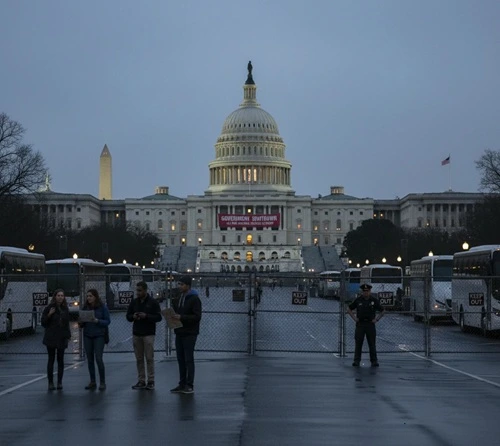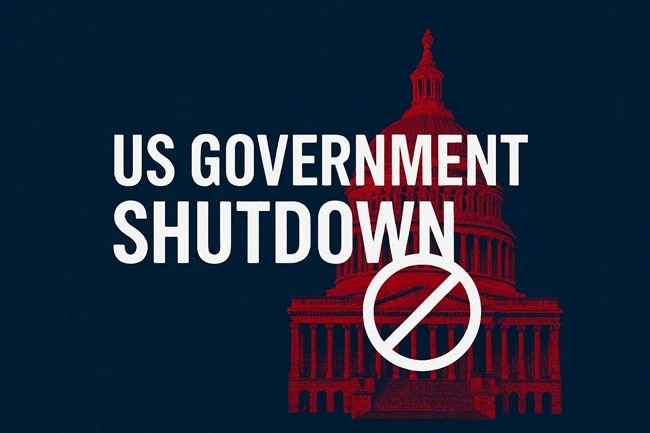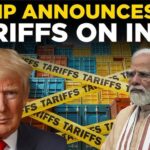Imagine waking up one morning to the news that the world’s most powerful country has “shut down.” Airports are still running, the military is still on duty, but thousands of government workers are sent home without pay, national parks lock their gates, and crucial services grind to a halt. Sounds strange, right? Yet this is exactly what happens during a US Government Shutdown.
For people in the United States, it can feel like daily life is put on pause. For the rest of the world, it sparks financial worries and political debates. But what does this shutdown really mean, why does it happen and how does it affect both Americans and other countries? Let’s break it all down in the simplest way possible.

What is a US Government Shutdown?
A US Government shutdown happens when the American government runs out of money to fund its operations. In other words, the lawmakers (Congress) fail to agree on a budget or a temporary spending plan. Without this approval, many government departments cannot legally spend money and they are forced to pause or limit their activities.
Think of it like this – imagine a family has not decided how to split their household budget for food, rent and bills. Until they agree, some bills cannot be paid and certain services at home stop running. That’s exactly how a shutdown works for a nation.
Why Does a Shutdown Happen?
The main reason is political disagreement. In the US, Congress (which makes the laws and controls spending) must pass funding bills and the President must sign them. If they cannot reach an agreement—whether due to differences in priorities, party politics or disputes over specific programs—the government runs out of authority to spend money.
Common causes include:
- Disagreement on spending limits.
- Debates over social programs, healthcare, or immigration policies.
- Political fights during election seasons.
What Happens During a Shutdown?
A shutdown does not mean the entire US government stops. Instead, only “non-essential” services pause. Here’s what happens in practice:
- Essential services continue – Military, air traffic control, border security and emergency medical care still function.
- Federal workers affected – Many government employees are either sent home without pay (furloughed) or asked to work without pay until the shutdown ends.
- Delays in public services – Passport processing, visa approvals, national parks and research projects may shut down or slow down.
- Economic impact – Businesses that rely on government contracts or tourism (like hotels near national parks) suffer losses.
For ordinary people, the impact may feel like longer waiting times, delayed approvals or financial stress for those working in federal jobs.
Has This Happened Before?
Yes, many times. Government shutdowns are not new in the United States. Since the 1970s, there have been more than 20 shutdowns, some lasting just a day, while others went on for weeks.
One of the longest shutdowns happened between December 2018 and January 2019, lasting 35 days. It caused huge disruptions, especially for federal workers who went weeks without pay.
What About Other Countries?
While shutdowns like this are mostly seen in the US due to its unique budgeting system, other countries may face financial deadlocks too. For example, in some nations, political gridlock can lead to delays in budgets or partial halts in government spending. However, very few countries experience shutdowns in the same dramatic way as the US.
What is the Impact on the US Government?
The effects of a shutdown are serious:
- Government workers unpaid – Millions may not get salaries on time.
- Public services disrupted – Services like IRS tax processing, small business loans or visa applications slow down.
- Economic loss – Shutdowns cost billions of dollars. Businesses lose money, tourism drops and consumer confidence weakens.
- Lower trust in government – Citizens lose faith when political leaders cannot agree on something as basic as keeping the country running.
Does It Affect Other Countries Too?
Yes, indirectly. The United States has one of the largest economies in the world, so when its government struggles, the ripple effect reaches everywhere.
- Global markets react – Investors in Asia, Europe and other regions may panic, fearing instability.
- International trade slows – US customs and import/export checks may get delayed.
- Foreign relations impact – Allies and partners may see delays in US aid programs or defense cooperation.
So, while the shutdown is a US issue, its shadow often stretches across the world.
How Long Does a Shutdown Last?
There is no fixed timeline. A shutdown continues until Congress and the President agree on a funding bill. It could be just a day, a week, or even more than a month. The longer it lasts, the more painful it becomes for both citizens and the economy.
How Can It Be Resolved?
The only way out is political compromise. Lawmakers must agree on a budget plan or pass a short-term funding measure called a continuing resolution. Once signed by the President, funds are released and government operations resume.
Why Should Ordinary People Care?
Even if you don’t live in the United States, a US government shutdown can affect you. Global stock markets, exchange rates and trade policies often react to US economic uncertainty. For people in the US, it directly affects daily services, jobs and financial security.
Final Thoughts
A US Government shutdown is not just about politics in Washington, D.C.—it’s about millions of people whose lives are disrupted. While essential services like defense and healthcare continue, the economic and emotional impact is real. History shows that shutdowns eventually end, but they leave behind financial losses and a sense of frustration among the public.
At the end of the day, the solution lies in political leaders working together. Until then, the world watches closely, because when America sneezes, the rest of the world often catches a cold.
For Latest Trending News, Please Follow Popnewsblend.com

Hi, I’m Prashant Jain — a curious soul, storyteller, and content creator at heart.I’ve always been drawn to the world of entertainment, travel, sports, health & lifestyle — not just as a writer, but as someone who genuinely lives these experiences. Whether I’m binge-watching the latest OTT series, exploring offbeat spiritual destinations in India, or diving deep into wellness routines and cricket match insights, I love sharing what I discover with like-minded readers.
PopNewsBlend is my way of blending personal journeys with meaningful stories — ones that inform, inspire, and keep you ahead of the curve. Everything I write comes from real observations, hands-on experiences, and a deep passion for understanding the world around us.
Discover more from Popnewsblend
Subscribe to get the latest posts sent to your email.








Your point of view caught my eye and was very interesting. Thanks. I have a question for you.